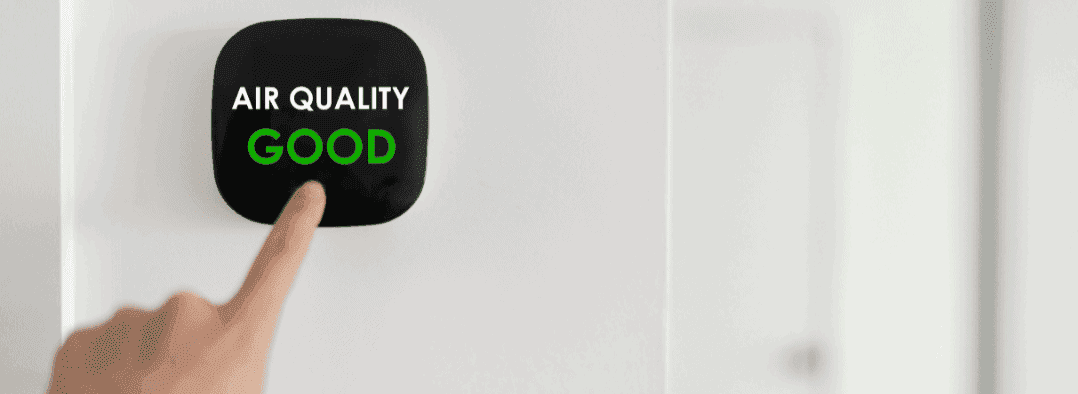Shocking Truth: How Ductless Systems are Changing Our Planet!
Hey there, fellow homeowners! If you're like me, you're always on the lookout for ways to make your home more comfortable while also being kind to our planet. Enter the world of ductless systems. As an experienced Ductless mini-split installation professional, I've seen firsthand how these systems are revolutionizing the way we cool and heat our homes. But how eco-friendly are they really? Let’s break it down!
Table of Contents:

ductless mini split saving the planet
The quality of air within our homes is often something we overlook, yet it's paramount for our well-being.
What's a Ductless System Anyway?
You might have heard terms like "best mini split ac" or "best ductless mini split" thrown around. They're just heating and cooling systems that ditch the ductwork. Think of an indoor unit chilling in your room and an outdoor unit that can be up to 50 feet away. When it comes to being eco-chic, ductless systems are totally nailing it. Let's start with the cool energy-saving vibe they've got going on. Unlike those old-school HVAC systems, which just can't help but lose energy in the ducts, ductless systems are like, "What ducts?" No ducts mean less energy going MIA, and that's a win in our books.
Now, let's chat about the carbon footprint. Traditional HVACs, especially those ancient models, are kinda like energy guzzlers. They use up more energy, and that leads to more greenhouse gas emissions. On the flip side, ductless systems are all about that green life. With lower energy consumption, they're giving us fewer greenhouse gas vibes and more of that clean air high-five. Plus, they're rocking the R-410A refrigerant, which is super cool because it's like giving a big "no thanks" to harming our ozone layer.
To wrap it up, when you stack up ductless systems against traditional HVACs, it's clear who's the real MVP for Mother Earth. They're energy-efficient, kinder to the environment, and totally in sync with keeping our planet groovy. High fives all around!
Comparing Ductless Systems to Traditional HVAC
When it comes to energy consumption, there's a clear difference between ductless systems and traditional HVAC units, especially the older versions. Traditional HVACs, designed with a network of ducts, frequently grapple with energy loss. As air travels through these ducts, a portion of the heated or cooled air tends to escape, causing the system to work overtime just to maintain the desired temperature. It's like trying to fill a bucket with water when there's a hole at the bottom – some of it's bound to get lost along the way. On the other hand, ductless systems, as their name suggests, ditch the ductwork altogether. This direct delivery method ensures almost every ounce of energy is put to good use, heating or cooling spaces more efficiently. As a result, they not only save on energy but also on utility bills.
Now, energy consumption doesn't just impact our wallets; it plays a massive role in our planet's well-being too. The more energy traditional HVAC systems gulp down, the more they contribute to greenhouse gas emissions, especially if the energy source isn't green. Given their propensity to consume more energy due to inherent inefficiencies, traditional HVAC systems end up having a beefier carbon footprint. This isn't great news for our already fragile environment. On the other side of the spectrum, ductless systems are like the superheroes of the HVAC world. Their lower energy consumption means they're emitting fewer greenhouse gases. It's as if they're waving a green flag, championing a healthier environment. In the grand scheme of things, while both systems have their merits, when pitted against each other in terms of energy efficiency and environmental impact, ductless systems seem to take the lead. For those leaning towards eco-friendly choices, they're certainly worth considering.

Air Quality Improvements
The quality of air within our homes is often something we overlook, yet it's paramount for our well-being. Ductless systems, apart from their energy efficiency and environmental benefits, bring another impressive advantage to the table: significantly improved indoor air quality. The traditional HVAC systems, with their extensive network of ducts, can sometimes be a breeding ground for dust, mold, and other pollutants. Over time, these contaminants accumulate and get blown into our living spaces every time the system is turned on. Enter ductless systems, which come without these ductwork concerns, virtually eliminating the chance of circulating these pollutants.
One of the standout features of ductless systems is their state-of-the-art filtration capabilities. These systems are designed to catch and reduce a broader range of allergens and pollutants, from pet dander and pollen to more microscopic particles. Regularly maintained and cleaned, the filters in these systems ensure that the air you breathe inside your home is as pure as it can get. This can be especially beneficial for allergy sufferers or those with respiratory conditions, offering a noticeable difference in the ease of breathing and overall comfort.
Incorporating a ductless system does more than just regulate temperature; it fosters a healthier living environment. Imagine coming home after a long day and not just unwinding in a comfortably cool or warm space, but also breathing air that's rejuvenating. The ripple effects of cleaner air are immense - better sleep, enhanced mood, and reduced health risks. It's a holistic approach to home comfort, intertwining relaxation with health benefits. So, with a ductless system, you're not just investing in a gadget; you're investing in well-being, making every breath in your home truly a fresh one.
Additional Resources
Looking to dive deeper? Schedule a FREE Appointment Today! Right HERE! and get an additional $200 OFF New System.
Back Home - Richair Comfort Solution - Ductless Mini Split Systems Top Quality Installations and Professional Service.
Was This Article Helpful?
RECENT POSTS



